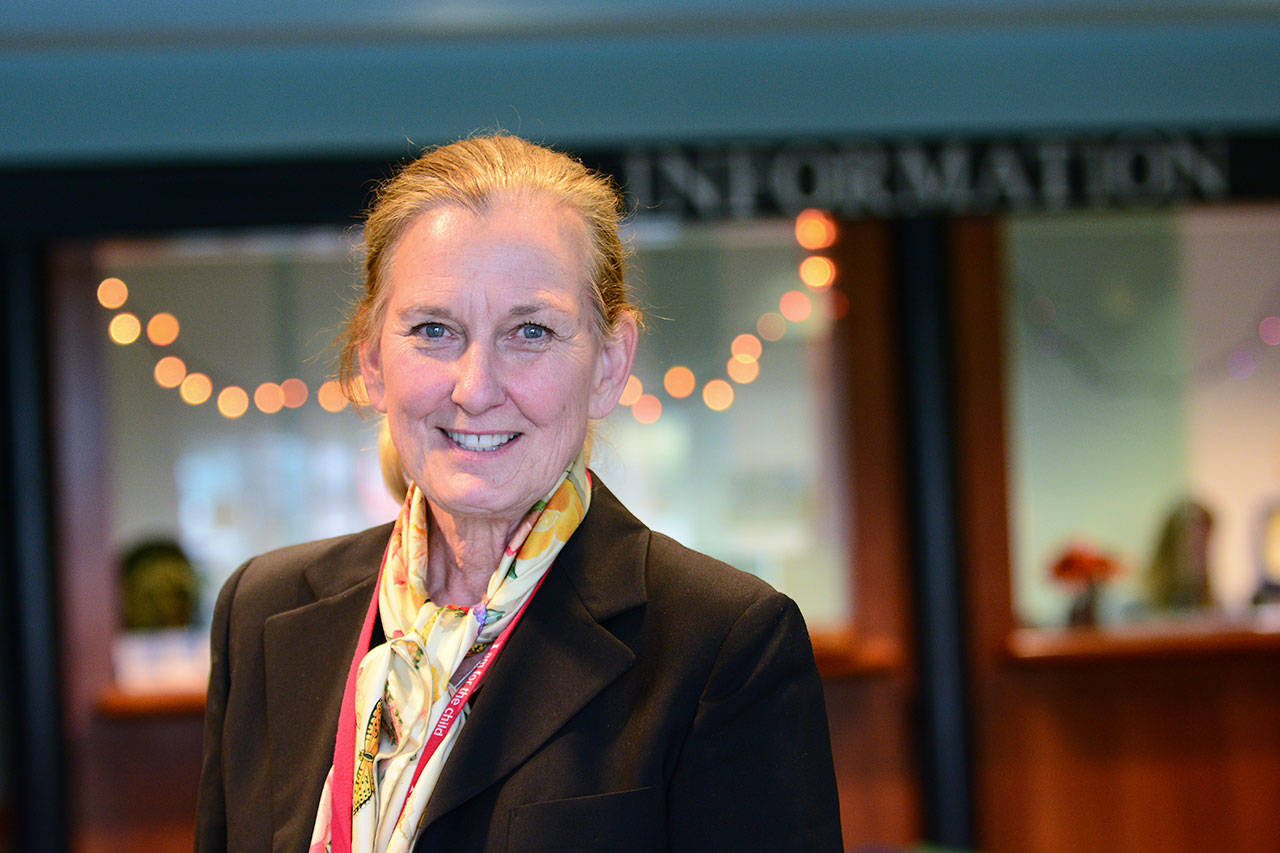PORT ANGELES — Clallam County Juvenile and Family Services is the only juvenile facility in the state that offers drug, mental health and family counseling to kids.
Roughly 100 kids go through the program each year, said Patricia Bell, True Star Behavioral Health Manager. About 50 are being treated for chemical dependency and another 50 are going through counseling for family issues, mental health and other issues they are facing.
She described the work as rewarding, humbling, slow and challenging.
“Their whole lives are ahead of them and you realize what an impact it can be for them to get help now versus later,” she said.
She said the No. 1 drug kids who enter treatment are using is marijuana, followed by alcohol and methamphetamine. Opioids, such as heroin and prescription pills, are less common.
Often when kids are referred to the program it is for marijuana or alcohol use, but once they are in treatment longer counselors find out about other things they are using as well.
“Honestly for kids, there’s nothing lightweight about using marijuana and alcohol,” she said, adding that use at a young age has long-term effects on development and motivation.
“They need all their energy and mindfulness just to grow up,” she said.
Kids also are struggling with mental health issues, family issues, depression, suicidal thoughts, stress and poverty, she said.
“I can’t tell you how many times when I hear the sirens near the bridge I’m worrying if somebody jumped,” she said.
About half of the kids she works with are ages 15 to 16. The other half of the kids are ages 13, 14, 17 and 18.
Occasionally people younger than 13 and older than 18 are in the program as well, she said.
True Star Behavioral Health started in 1998 and is the largest youth-focused program in Clallam County, she said.
It’s one of many programs offered at the facility, which officials tout as being the best in the state.
Voters are considering on the Nov. 7 ballot a 0.1 percent countywide sales tax that would support the Juvenile and Family Services facility.
The tax would generate an estimated $1.1 million per year dedicated for equipment, repairs, maintenance and operations of the facility.
The state pays about 40 percent of the costs. The rest is picked up in the county’s general budget.
If the proposition fails, the county is still required to fund Juvenile and Family Services, but officials have said there would likely be cuts in other parts of the county budget.
Clallam County Juvenile and Family Services also provides offender supervision, local sanctions disposition and probation, risk assessment, We’re In This Together seminars, victim-offender mediation, educational classes, a diversion program, teen court, truancy, at-risk youth, prevention and intervention, family court, drug court and juvenile corrections.
During group sessions with True Star, there is time set aside for “juvie clubhouse,” which is a time for the kids to learn to have fun without using drugs, she said.
They set up video games, ping pong and other activities in the lobby of the facility after hours, Bell said.
“A lot of kids who are daily and frequent users, they associate fun with using something chemical,” she said. “We have to teach them you can have endorphins, laugh and have a good time without that.”
With federal funding, True Star also is able to provide kids items that can help with their recovery.
That includes items such as bus passes, gym memberships, musical instruments and bikes.
She said clients go on to graduate high school, earn a GED, get jobs, get internships, build families and go to college.
It’s those successes that keep her going, she said.
“When you’re sitting with clients still struggling, it helps to remember there are many of our kids, young adults and adults out there being successful,” she said.
________
Reporter Jesse Major can be reached at 360-452-2345, ext. 56250, or at jmajor@peninsuladailynews.com.

